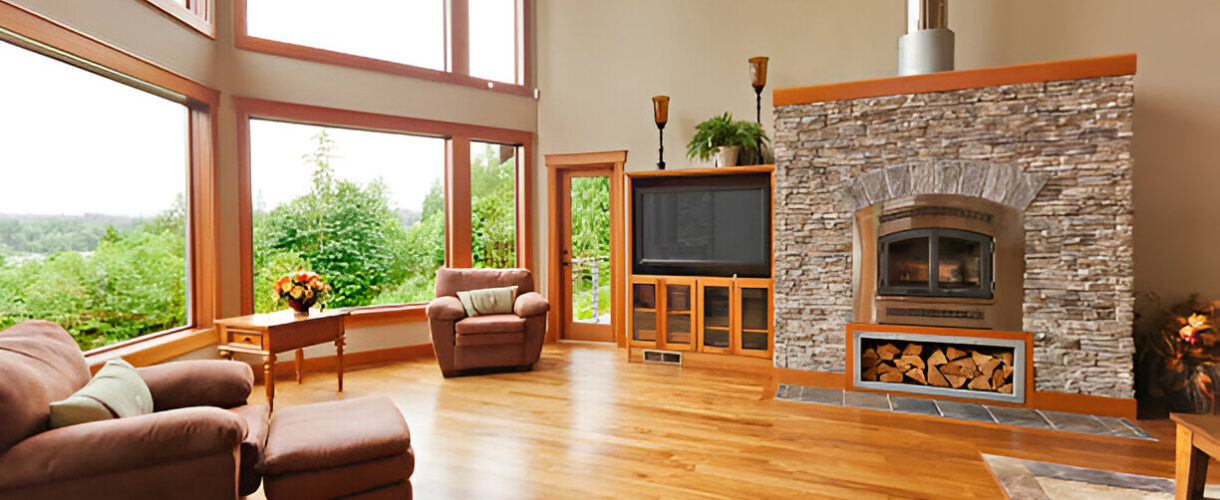Hardwood flooring is a timeless choice, adding warmth, beauty, and value to any home. But like all investments, homeowners often wonder: how long does hardwood flooring last? While hardwood floors are known for their durability, their lifespan depends on a range of factors. With proper care, hardwood floors can last for decades and, in some cases, even centuries. Here, we’ll explore the elements that affect the longevity of hardwood flooring, the signs that indicate it may be time for a replacement, and tips on how to extend its life.
Key Takeaways
- Hardwood floors can last decades or longer with proper care.
- Woods like oak and maple outlast softer woods like pine.
- Professional Installation Ensures a long-lasting, problem-free floor.
- Regular cleaning and refinishing extend floor life.
- Stable humidity and UV protection prevent damage.
- Scratches, structural issues, and fading indicate it’s time for new flooring.
- Prevention: Use doormats, furniture pads, and clean spills quickly to protect floors.
Factors Affecting Hardwood Flooring Lifespan
Choosing hardwood flooring for your home is a viable choice and a valuable investment. But first, let’s find out the factors that influence how long hardwood flooring lasts, from the type of wood you choose to how you care for it –
Quality of Wood
The quality of the wood is the first and foremost factor that affects the lifespan of hard flooring. Solid hardwood flooring, oak, and maple are known for their extremely durable nature. This makes them an excellent choice for installation in homes or areas with high foot traffic.
In comparison, there are softwoods like pine or fir, which are beautiful. However, they may not last long and may require more maintenance. Therefore, the quality of wood is one of the important factors that affect the life expectancy of hardwood floors.
Installation Method
Hardwood flooring generally follows the tongue-and-groove method. In this method, the installer connects boards and nails them down to the subfloor to ensure precise fitting. The process of hardwood installation, if done right, minimizes gaps, creaking, or unnecessary movement. On the other hand, DIY installation is easiest for engineered hardwood. So, it is advisable to always invest in professional installation to save time and money in the long run.
Maintenance
How long hardwood flooring lasts also depends on the ways you care and maintain your floors, especially in high-traffic areas. Regularly sweep the floor with a soft-bristled broom to keep away the dirt and debris. Vacuum the floor once a week. While vacuuming, use the kind of vacuum with soft rubber wheels and one that allows you to turn off the beater brush instead of the rotating brush and hard plastic wheels. Periodic hardwood refinishing (after 7-10 years) plays a significant role in extending the lifespan of original hardwood floors. So, take all these measures to increase the longevity of hardwood flooring.
Environmental Conditions
Wood is a natural material. So, it expands and contracts depending upon the moisture levels. It can sell due to high humidity levels, while dry conditions can result in their shrinkage and gaps between the planks. Solid hardwood flooring is completely biodegradable, and you can even recycle it.
Besides, direct sunlight can cause discoloration or fading of the wood floor. You can use UV-protective coatings to minimize sun damage. Maintain a stable indoor environment to protect the hardwood flooring at your home from extreme or harsh environmental conditions.
Signs Your Hardwood Flooring Needs Replacement
No matter how well you care for your original hardwood floors, they will eventually show signs of wear that may indicate the need for replacement. Here are some common signs that it may be time to consider new flooring –
Visible damage
You will be able to see the signs of visible damage, like scratches and dents, in your solid hardwood flooring, which will help you figure out that it’s time to replace them. Also, if you have refinished the hard flooring numerous times, there may not be enough material left to sand down and refinish again. This makes replacement the best option when it comes to the floor of your home.
Structural issues
Structural issues of your hardwood flooring range from warping to buckling to cupping, which can be caused due to moisture damage. Too much moisture absorbed by the wood gives you the reason to completely replace your wood. Thus, the bad condition of the structural integrity leaves you with the option of replacement to prevent further damage.
Aesthetic changes
Over the years, you will be able to notice the lost luster of your hard flooring. If you notice significant discoloration in your original hardwood floors, you should consider floor replacement to improve your home’s aesthetic appeal.
How to Extend the Life of Your Hardwood Flooring?
You must keep the following tips in mind to increase the life expectancy of hardwood floors –
- Use doormats at all entry points in your home.
- High-traffic areas like entryways and hallways need more maintenance than little-used rooms. So, sweep or mop them more often.
- Put padding underneath the furniture. If you want to move the furniture at your home, move the pieces cautiously to prevent scratching on the floor.
- Clean up the stains and spills as quickly as possible.
- Keep the solid hardwood dry and use only approved cleansers and cleaning tools on them.
Conclusion
Hardwood floors can last for generations if you take care of them properly. When signs of wear become apparent, refinishing or replacing your floors can restore their beauty and functionality. With the right approach, hardwood flooring can be one of the longest-lasting and most rewarding features in your home. And if you want the same for your home, MyNewFloor.com is there at your beck and call. Our professionals are the leading manufacturers of hardwood, carpet, vinyl, and laminate flooring and work with you to install the perfect flooring for your home on a budget. Want to know more? Contact our certified installers right away.
